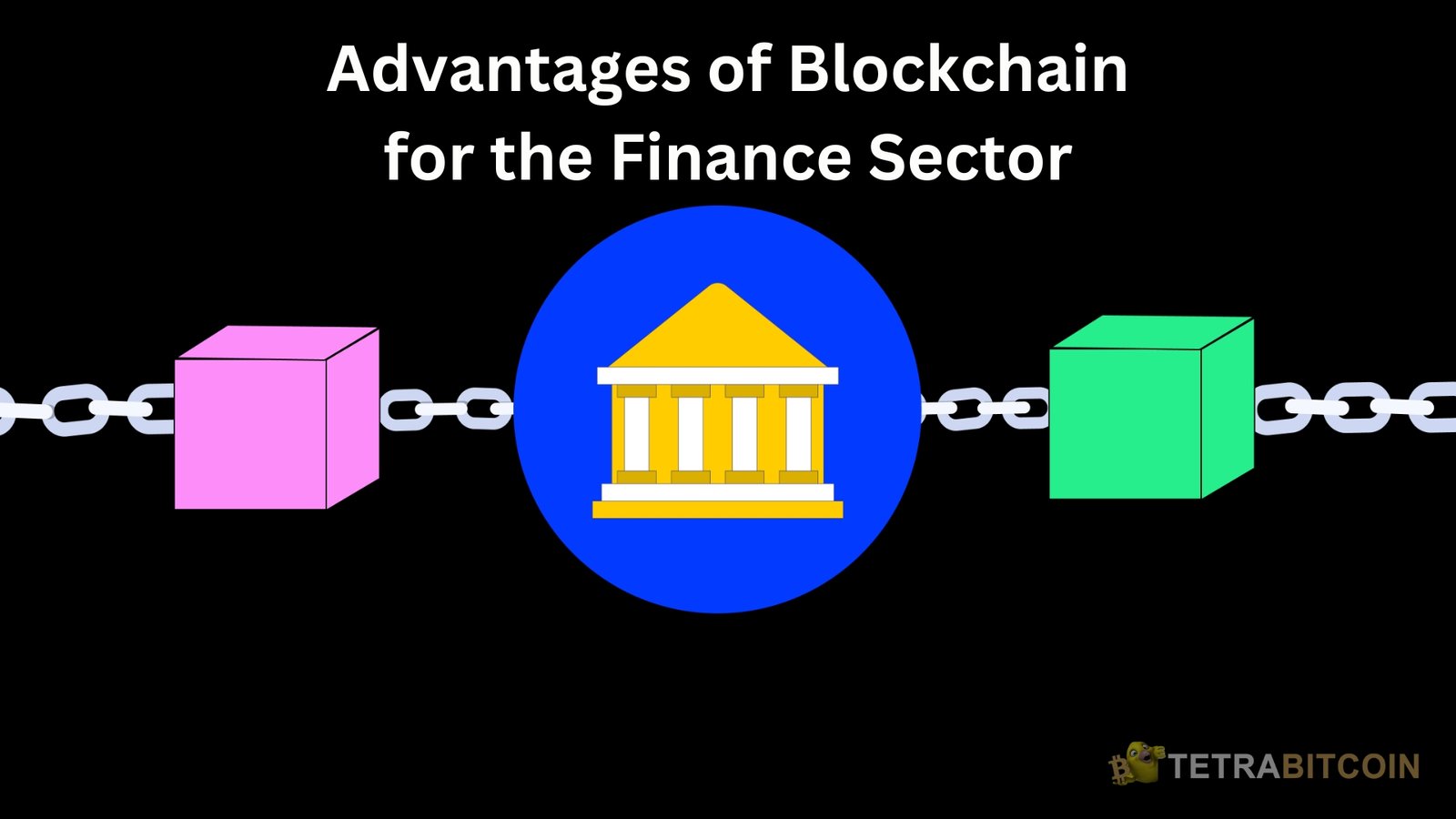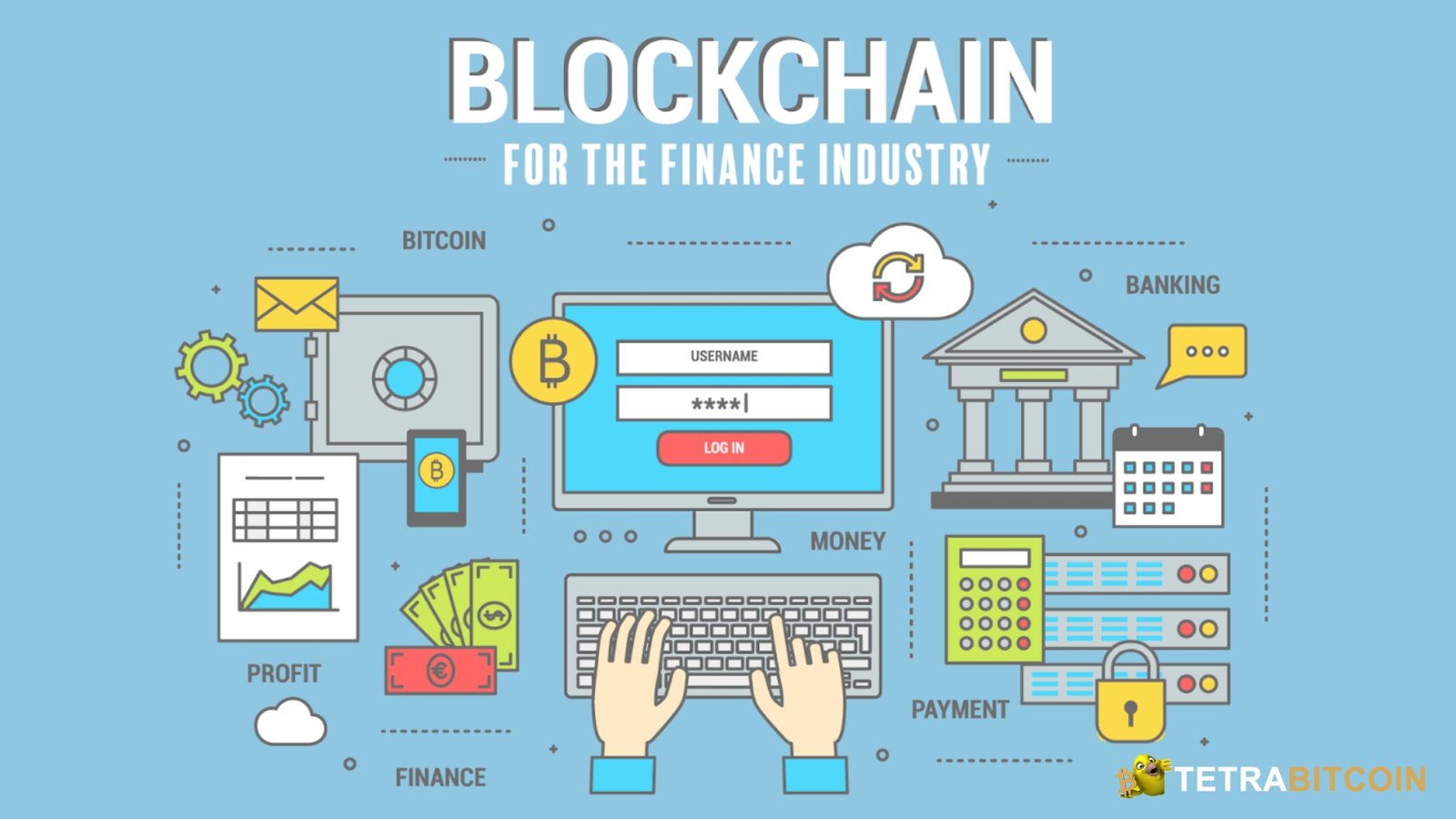Blockchain in Finance. Financial services, supply chain management, and healthcare were just a few sectors rocked by the revolutionary new trends brought about by blockchain technology. About two or three years ago, blockchain startups first gained widespread attention. Almost every contemporary business is now exploring blockchain technology for potential opportunities. Blockchain is a distributed ledger system that operates independently of any central authority. In 2009, it managed to capture the attention of the general public.
Thus, conventional wisdom was that blockchain technology could only be useful in the financial sector. According to its features, blockchain technology has the ability to revolutionize the financial sector. It is crucial to consider blockchain’s future significance in the financial sector as its applications grow across different industries.
This section comprehensively overviews blockchain’s impact on the banking industry. Discover the many applications of blockchain technology in the financial industry and why it is a good fit for the modern financial system. Furthermore, the topic would also touch on the anticipated developments in the financial sector for blockchain technology in 2024.
Advantages of Blockchain for the Finance Sector
To put it simply, new technology is notoriously confusing. Above all else, it is unusual to come across a technological advancement whose name adequately conveys its function. The blockchain, which means precisely what it sounds like, would be an ideal example. Data blocks can be created and stored in a chain using blockchain technology.
A “digital ledger” is formed by adding each newly-created block associated with a transaction to the chain. Blockchain technology has opened up new possibilities for use in the financial sector by introducing significant improvements over traditional digital ledgers. The following are some of the most compelling arguments favoring exploring blockchain’s potential use in the financial industry.
Decentralization
Blockchain technology makes the distribution of a digital ledger to several nodes possible. Consequently, no central authority is required to handle the processing and storage of financial transaction data. Since there is no one location for keeping transaction data with a single security mechanism, using blockchain technology in financial functions can eliminate the possibility of hackers gaining access to this data. In addition, third parties no longer have any say in the outcome of monetary transactions, thanks to blockchain technology. This means that blockchain technology can potentially improve accessibility and reduce costs in the financial sector.
Immutability
Once blocks are added to the blockchain, they cannot be changed. When applied to routine commercial transactions, immutability offers a plethora of benefits. In a nutshell, blockchain ledgers may act as reliable databases.
Security
Security using blockchain technology is undeniably one of the several reasons that support the need to use blockchain in banking. The blockchain’s transaction ledger is protected by encryption, which means only those with the correct key code can access the data. In addition, the fact that blockchain transactions are peer-to-peer and decentralized makes them very secure.
Use Cases of Blockchain in Banking and Financial Services
Understanding how blockchain can revolutionize the finance business is crucial now that you know the unique characteristics that make it appropriate for this field. For a long time, the financial sector has been facing several problems.
While technology has been helping with everyday problems, some innovations have worsened things. There are many fintech options available in the current financial sector. Consequently, there is a persistent lack of clarity among financial service providers regarding the optimal method to meet their needs. Implementing blockchain technology may address some of the most pressing problems in the financial industry.
Issues with Security and Transparency
The global financial services industry relies heavily on antiquated, top-down methods. Most of the world’s financial data resides in centralized systems and must be relayed via a web of intermediaries. Moreover, centralized systems do not provide openness. In addition, database security and intermediates are the only factors guaranteeing data security.
The converse is also true: even the most secure databases can be breached or hacked. Since inconsistencies go unnoticed until a data breach or other system error is discovered, a lack of transparency frequently results in complex security risks. Transparency in financial data would be great for customers and service providers, but not everyone would be on board with the notion.
Implementing blockchain technology in banking and finance helps to guarantee both security and transparency. Immutability is the most important feature of blockchain technology, and it guarantees transparency and security. Blockchain technology guarantees data integrity, accuracy, and validity by eliminating the possibility of data manipulation. Blockchain technology in the financial industry also uses the advantages of anonymity.
Two types of security keys, public and private, are used in blockchain applications. Only those involved in a transaction can access the private key, whereas the public key is available to everyone on the network. Consequently, all network users can see the transaction, but only those actively involved can see the specifics of the transaction. Therefore, blockchain can keep the financial system open while protecting the private financial data of those involved in transactions.
Cost Issues
Because of centralization, the financial sector must spend a lot of money on several processes. Financial service providers must invest substantially in accounting, database upkeep, central database procurement, value transfer systems, database security, labor costs, and intermediary commissions. Additionally, they must make regular investments in all of these. Consequently, a financial service system can become rather pricey due to all the additional charges.
A new study found that by 2024, financial service companies can save $15–$20 billion annually by implementing distributed ledger technology. Blockchain technology can increase openness, guarantee savings, and center on security. Smart contracts, made possible by blockchain technology, have the potential to revolutionize banking by cutting out intermediaries, unnecessary paperwork, and value transfers.
Auditing Issues
The financial sector relies heavily on auditing. Financial auditing is fraught with difficulties owing to the lack of openness and being a lengthy and costly procedure. Intermediaries may reveal sensitive information during an audit if there is no openness. Consequently, dishonesty, irregular compliance, long auditing periods, and unethical behavior plague the banking sector.
Using blockchain technology in the financial industry has the potential to make audits much easier. With full visibility into all financial organization events, auditors may verify correct compliance with the immutable blockchain records. Financial service providers can be held accountable for their honesty and ethical behavior by utilizing blockchain technology, which helps to maintain transparency. With blockchain, it’s much simpler to trace any questionable financial transaction. Additionally, blockchain technology can expedite auditing processes because all financial information is readily available.
Risk Management
The financial sector encounters considerable risks in offering loans, such as establishing trust in intermediaries. Other risks include a counterparty’s failure to address their obligations and credit risk arising from information asymmetry. Furthermore, commercial banks’ focus on monitoring and tracking loan usage ultimately depends on intermediaries. Financial service providers lack proven measures and strategies for dealing with such risks.
The use of blockchain in banking and financial services could enable peer-to-peer transactions. Therefore, financial service providers can exclude their concerns regarding the role of intermediaries in peer-to-peer transactions. Blockchain technology can enable smart contracts for faster transaction settlement, while data immutability with blockchain improves reliability. Most importantly, recording all transactions on the network can help reduce fund management and credit risks. As a result, implementing blockchain in finance functions could enable financial service providers to manage risk effectively.
Key Trends Expected for Blockchain in Finance in 2024
The potential of blockchain technology in the financial sector is demonstrated by its benefits and ability to address current difficulties in 2024. Experts predict 2024 will see increased venture capital investment in financial blockchain applications. Blockchain technology is utilized in the development of numerous financial services. There has been a meteoric rise in funding for blockchain technology’s potential financial uses, particularly in Europe. Many firms are slowly demonstrating how blockchain technology is improving the financial services ecosystem.
The advent of central bank digital currencies (CBDC) has also given blockchain fresh life in the financial industry. CBDC is essentially a blockchain-based new kind of central bank currency. Banks and other financial institutions are also looking for ways to use blockchain technology to streamline the management of client funds.
There are concerns, too, because the transaction flow is flatter in 2020 compared to 2019 because of a worldwide pandemic. In 2024, blockchain may disrupt the financial sector, but Hutt Capital Managing Partner Brooke Pollack is pessimistic. Hutt Capital is one such venture capital firm that is interested in blockchain projects. Pollack reported increased deal activity in the fourth quarter, a great year for blockchain businesses. Pollack said blockchain companies’ success has increased the banking sector’s investment in blockchain technology.
Startups in the blockchain space are also contributing to the DeFi ecosystem by releasing new products and technologies. Financial software built on blockchain with a flexible architecture is essentially what DeFi is. Among the most well-known uses of DeFi, BitPay stands out. Businesses and organizations can use BitPay’s Bitcoin payment solutions. Crunchbase reports that BitPay successfully raised $72.5 million. However, BlockFi has successfully attracted about $160 million in investments.
Conclusion
Last but not least, blockchain technology is essential for fixing numerous problems plaguing the banking sector. Concepts like DeFi and CBDCs can potentially become popular in 2024 as businesses and startups explore different ways blockchain may be applied in the financial sector.
In addition, blockchain technology’s admiration from financial service providers will only grow as it improves transparency, security, risk management, and transaction speeds. Nevertheless, many obstacles still exist to the widespread use of blockchain technology in the financial sector. Better results may be in store for corporations if they can foresee emerging patterns in blockchain’s financial applications and the technology’s expanding capabilities.

